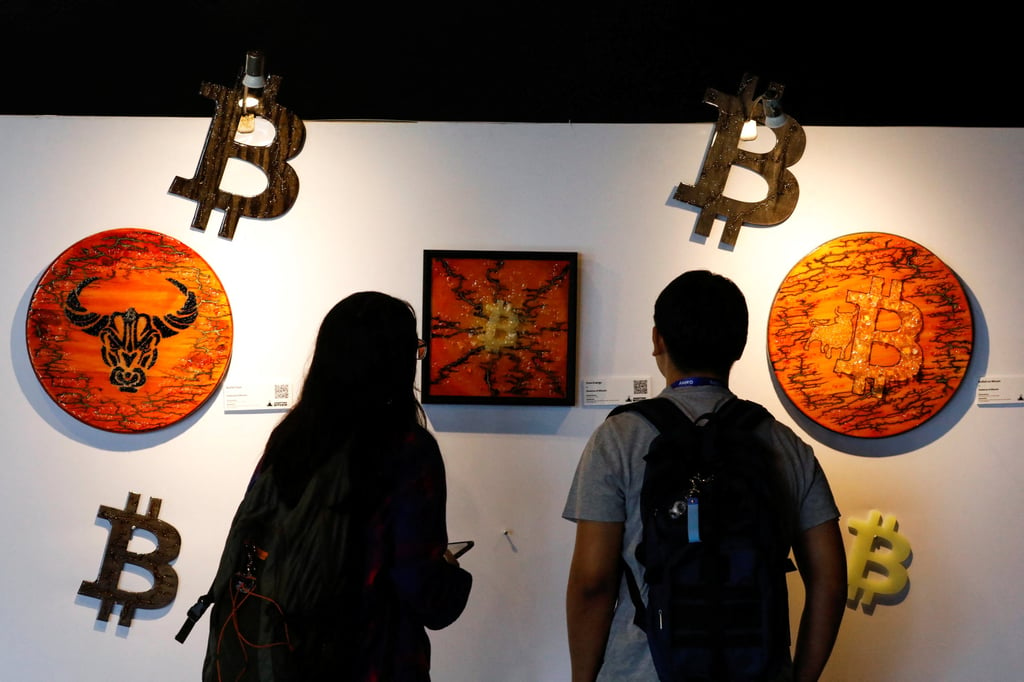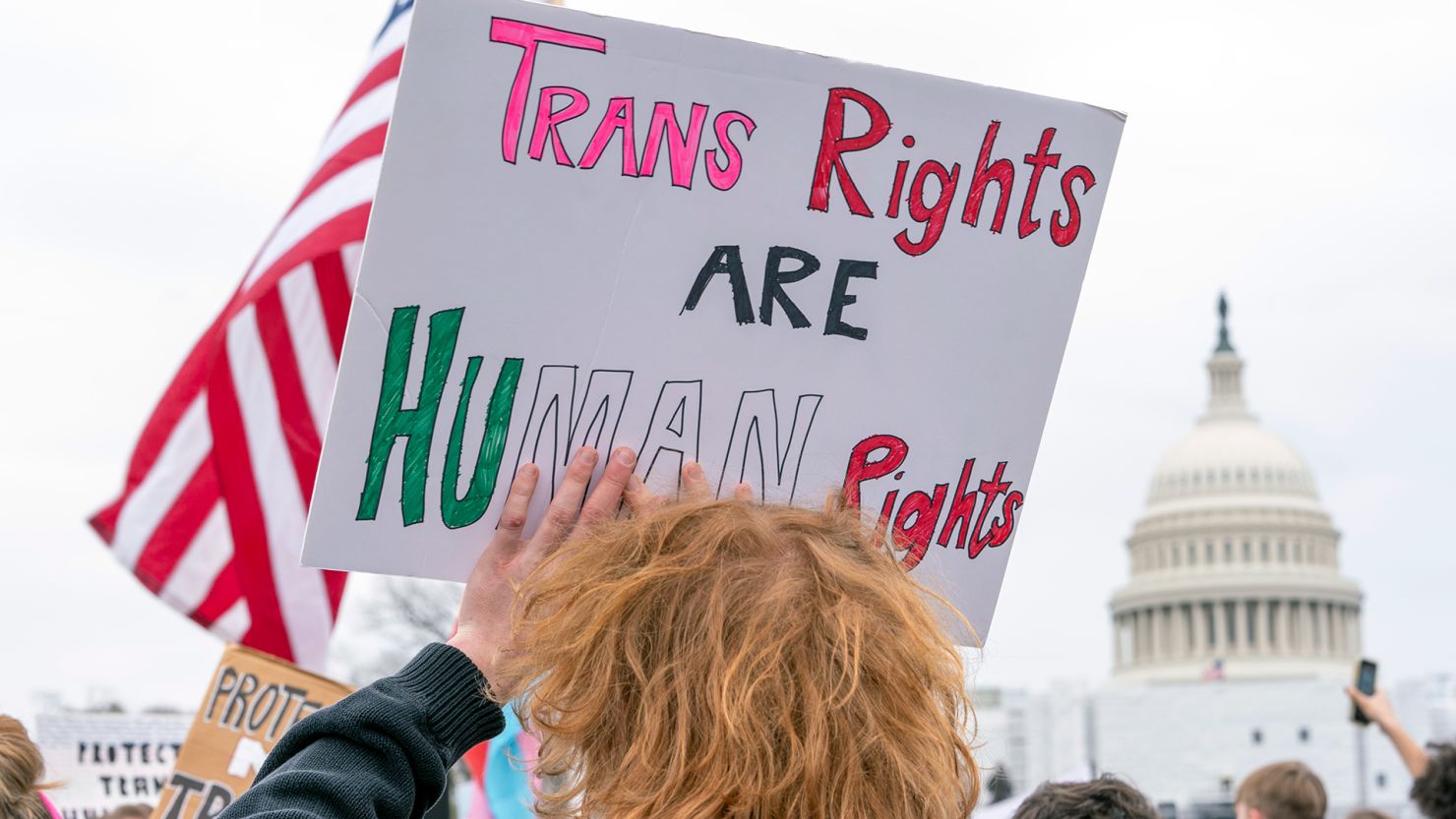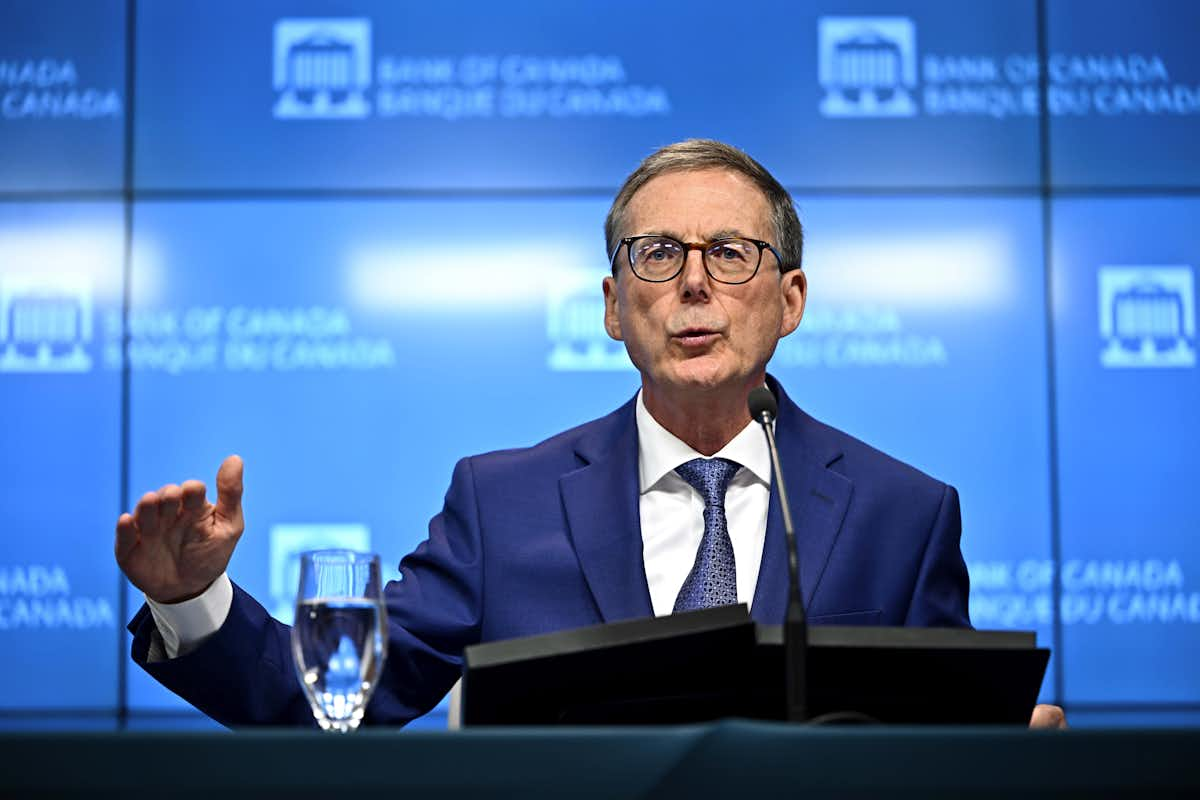Bitcoin (BTC) Reacts To Trump's Trade Initiatives And Federal Reserve Moves

Table of Contents
Trump's Trade Policies and Their Impact on Bitcoin
Former President Trump's "America First" trade policies, characterized by tariffs and trade wars, significantly impacted global markets and, consequently, Bitcoin's price. The uncertainty created by these policies influenced investor sentiment and triggered considerable volatility in the cryptocurrency market.
The Trade War with China
The trade war with China, marked by escalating tariffs and retaliatory measures, created considerable uncertainty in global markets. This uncertainty directly affected Bitcoin's price:
- Increased market volatility: The trade war fueled significant volatility in both traditional and digital asset markets, causing Bitcoin's price to fluctuate dramatically.
- Safe-haven asset status of Bitcoin: Some investors viewed Bitcoin as a safe haven asset during times of economic uncertainty, leading to increased demand and price appreciation in certain periods.
- Flight to safety: As investors sought to protect their assets from the escalating trade tensions, some diverted funds into Bitcoin, viewing it as a less correlated asset.
- Potential for increased Bitcoin adoption in affected regions: The trade war potentially spurred increased Bitcoin adoption in regions economically impacted by the conflict, as individuals sought alternative financial systems.
Tariffs and Their Ripple Effect
Tariffs imposed by the Trump administration disrupted global supply chains and impacted investor confidence. This had a direct correlation with Bitcoin's price:
- Impact on global supply chains: Disruptions to supply chains increased production costs and reduced economic output, negatively impacting investor sentiment and potentially influencing Bitcoin's price.
- Effect on investor confidence: The uncertainty surrounding the trade war and the potential for further tariff increases eroded investor confidence in traditional markets, potentially driving investment towards Bitcoin.
- Correlation between stock market fluctuations and Bitcoin's price: Studies have shown a correlation, albeit not always perfectly linear, between the performance of traditional stock markets and Bitcoin's price. Trade-related stock market fluctuations often affected Bitcoin's price as well.
"America First" Policies and Bitcoin's Global Nature
The inherent tension between Trump's protectionist policies and Bitcoin's decentralized, global nature is noteworthy:
- Bitcoin's potential to bypass traditional financial systems: Bitcoin's decentralized nature allows it to operate outside of traditional financial systems, potentially mitigating the impact of protectionist policies.
- Implications for international trade and capital flows: Trump's policies aimed to restrict international trade and capital flows, while Bitcoin offers a potential alternative for cross-border transactions.
- Bitcoin's role as a hedge against political uncertainty: Some investors view Bitcoin as a hedge against political uncertainty, making it an attractive asset during times of geopolitical tension.
Federal Reserve Actions and Bitcoin's Price
The Federal Reserve's monetary policy decisions, including interest rate adjustments and quantitative easing programs, also significantly influence Bitcoin's price and market behavior.
Interest Rate Hikes and Bitcoin's Inverse Correlation
Interest rate hikes by the Federal Reserve often lead to an inverse correlation with Bitcoin's price:
- Impact on the US dollar: Interest rate hikes strengthen the US dollar, potentially reducing the demand for Bitcoin as an alternative investment.
- The appeal of Bitcoin as an inflation hedge: Some investors view Bitcoin as a potential hedge against inflation, making it more attractive during periods of monetary expansion.
- Potential for capital flight into cryptocurrencies: If investors lose confidence in traditional financial instruments due to rising interest rates, some may move their capital to cryptocurrencies like Bitcoin.
Quantitative Easing and Bitcoin's Value
Quantitative easing (QE) policies, implemented by the Federal Reserve to stimulate the economy, can impact Bitcoin's value:
- Inflationary pressures: QE policies can lead to inflationary pressures, potentially increasing the appeal of Bitcoin as a store of value.
- The role of fiat currency devaluation in driving Bitcoin adoption: If fiat currencies lose value due to inflation, investors may seek alternative stores of value like Bitcoin.
- The relationship between money supply and Bitcoin's market cap: An increase in the money supply due to QE can indirectly influence Bitcoin's market capitalization.
Monetary Policy Uncertainty and Bitcoin's Volatility
Uncertainty surrounding the Federal Reserve's monetary policy decisions can contribute to Bitcoin's price volatility:
- Investor hesitancy: Uncertainty can lead to investor hesitancy, causing price fluctuations as investors react to changing expectations.
- Increased trading activity due to uncertainty: Uncertainty can also stimulate increased trading activity, as investors try to anticipate future price movements.
- The role of speculation in Bitcoin's price movements: Speculation plays a significant role in Bitcoin's price, and monetary policy uncertainty can amplify speculative activity.
Conclusion
Both Trump's trade initiatives and the Federal Reserve's actions have demonstrably influenced Bitcoin's price and market behavior. Bitcoin's sensitivity to macroeconomic factors is undeniable, highlighting its interconnectedness with traditional financial markets. Bitcoin's potential role as a safe haven asset and its relationship with fiat currencies remain key aspects to consider. Understanding the interplay between global economic policy and Bitcoin (BTC) is crucial for navigating the volatile cryptocurrency market. Stay tuned for further analysis of Bitcoin's reaction to future economic developments.

Featured Posts
-
 Broadcoms Proposed V Mware Price Hike At And T Reports A Staggering 1 050 Increase
Apr 24, 2025
Broadcoms Proposed V Mware Price Hike At And T Reports A Staggering 1 050 Increase
Apr 24, 2025 -
 Cassidy Hutchinson Key Jan 6 Hearing Witness To Publish Memoir This Fall
Apr 24, 2025
Cassidy Hutchinson Key Jan 6 Hearing Witness To Publish Memoir This Fall
Apr 24, 2025 -
 Minnesota Ag Preemptively Challenges Trumps Transgender Sports Ban
Apr 24, 2025
Minnesota Ag Preemptively Challenges Trumps Transgender Sports Ban
Apr 24, 2025 -
 Conservative Party Promises Tax Cuts And Deficit Reduction In Canada
Apr 24, 2025
Conservative Party Promises Tax Cuts And Deficit Reduction In Canada
Apr 24, 2025 -
 Voice Assistant Development Revolutionized Open Ais 2024 Announcement
Apr 24, 2025
Voice Assistant Development Revolutionized Open Ais 2024 Announcement
Apr 24, 2025
